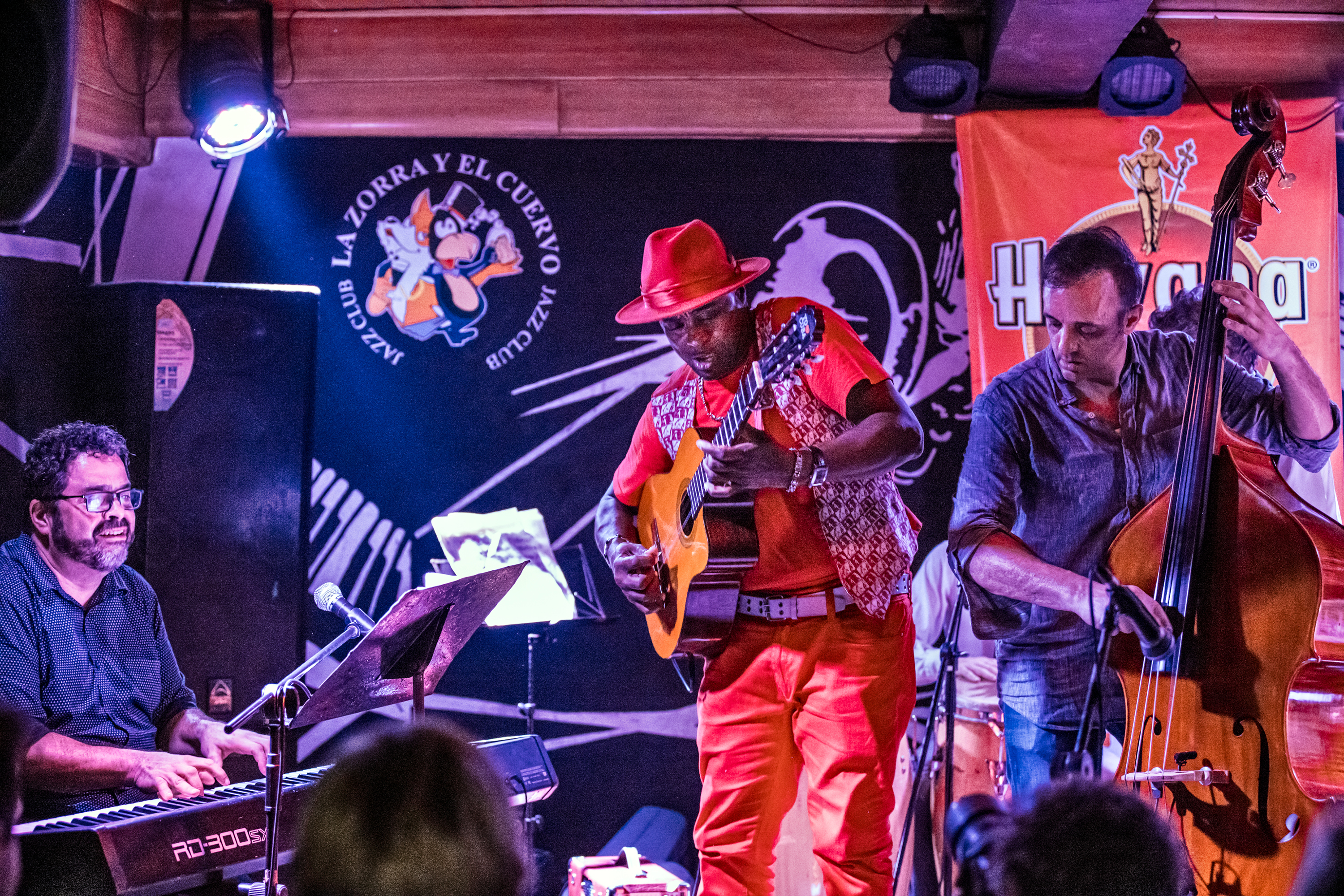In December 2014, when the U.S. and Cuba announced that they would restore diplomatic relations, UConn string bass instructor Gregg August heard the news not stateside but on the island itself. He was in Havana recording the album “Cuba: The Conversation Continues,” as bassist for Arturo O’Farrill’s Afro Latin Jazz Orchestra. One of the tracks he played on that album was “The Afro Latin Jazz Suite,” an energetic four-part work that would go on to earn O’Farrill a 2016 Grammy Award for instrumental composition.
August, who has been traveling to Cuba for the past 15 years to play jazz, vividly remembers the night the news was announced. “Nothing will compare to having experienced first-hand what was happening,” he says. “It was an amazing thing.”
Growing up in Schenectady, N.Y., August was surrounded by music. His father, who played piano, and his mother enjoyed listening to jazz and rhythmic music. He played drums in high school and his music teachers were his father’s sister, who taught piano, and her husband, who taught bass, the instrument he would eventually turn to in college.
“They always had music on in the house,” he recalls. “My parents were listening to all kinds of music, especially jazz and R&B: Cannonball Adderly (with Nancy Wilson), Bill Evans, Blood, Sweat and Tears, Sergio Mendez. There were even classical records, like Glenn Gould playing Bach. I remember getting Earth Wind and Fire and Stevie Wonder records for Christmas. I didn’t hear Latin music as a kid, but I think I developed a certain sensibility for it through listening to Chick Corea’s music; his music always has that Spanish thing, those kinds of rhythms.”
He says he experienced a “natural gravitation” to Latin music because of his background in percussion and bass, the core of a band’s rhythm section.
August received his bachelor’s in bass at The Eastman School of Music, earned his master’s from The Juilliard School before spending time as principal bass with La Orquesta Ciutat de Barcelona in Spain and freelancing as a jazz bassist in Paris. He says he returned to New York City because he knew he had to be there in order to grow as a jazz musician, and he missed the opportunity to play a wide variety of music. Over the years he has performed with percussionist Ray Barretto, The Orpheus Chamber Orchestra, The Brooklyn Philharmonic, saxophonist Ornette Coleman, American Composer’s Orchestra and saxophonist Paquito D’Rivera, among others, before becoming a member of the Afro Latin Jazz Orchestra, which plays Sunday nights at Birdland in New York.
“The fact that we can play every Sunday at Birdland, there’s nothing like it,” he says of his work with Afro Latin Jazz Orchestra. “You have to show up, get your sound right. I feel very lucky to have that the last four or five years.”
For the past 12 years August also has been involved with Bang on a Can, an experimental music organization in New York, which conducts a summer festival at Mass Moca, the Massachusetts Museum of Contemporary Art in the Berkshire Mountains.
“It allows me to tap into what they’re doing. It’s not jazz and is kind of outside my world, which is very good because it expands your thinking. I go there for three weeks every summer and they encourage original music,” he says.
August says that before recording “The Afro Latin Jazz Suite,” in which his bass is prominent and helps to drive the rhythm section, O’Farrill had a specific bass line for one of the movements. However once in the studio, the composer told him to ignore the score and just play.
“In Latin music in general, unless you’re playing figures with the band, the bass will be allowed to do its thing,” August says. “You have to really do your homework on what the bass it expected to do in specific grooves.
Being able to work both in classical music and jazz is one of the reasons he was drawn to UConn, where he teaches students in both genres.
“I can’t find that anywhere else,” he says of his weekly teaching schedule in Storrs. “I pretty much bring in students and focus on classical bass. If they want to play jazz, they still have to know the bass. I found a certain comfort zone here. The level [of musicianship] is getting better, which keeps you going. It’s more stimulating with the students.”
August is having a busy year. In addition to his teaching and work with the Afro Latin Jazz Orchestra, he is arranging piano quintet compositions for a Lincoln Center project with Holland Cruise Lines, working on a project with the Shanghai Pops and recently completed a recording as part of his work with the JD Allen Trio. In late May, he will join the Afro Latin Jazz Orchestra at the historic Apollo Theater in Harlem to perform a new work by O’Farrill, “The Cornel West Concerto,” and in June he will head to Japan for a tour with the Orpheus Chamber Orchestra.



